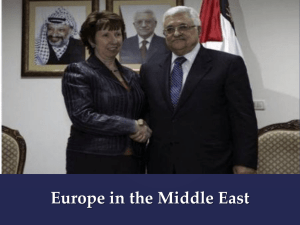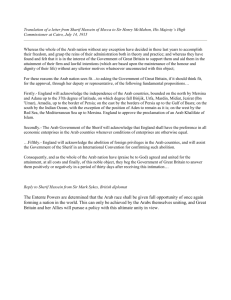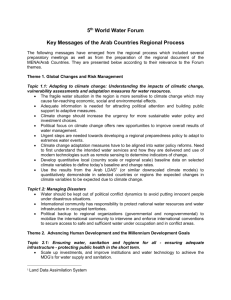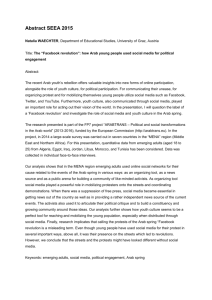Study-Guide-Chapter-One-Gelvin
advertisement
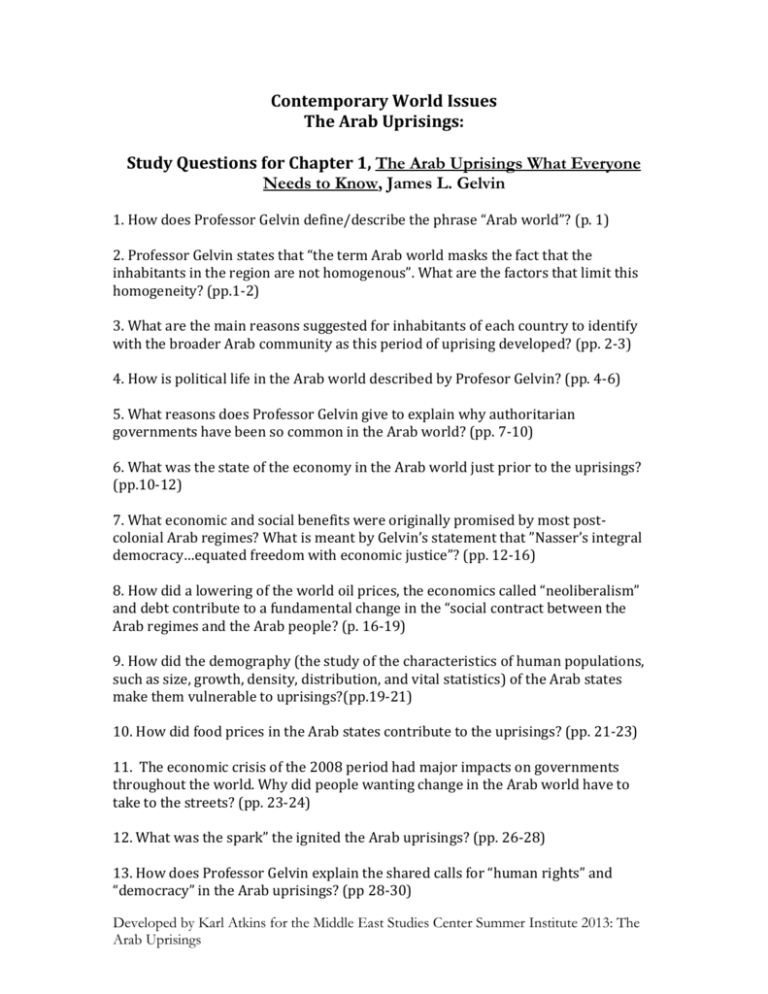
Contemporary World Issues The Arab Uprisings: Study Questions for Chapter 1, The Arab Uprisings What Everyone Needs to Know, James L. Gelvin 1. How does Professor Gelvin define/describe the phrase “Arab world”? (p. 1) 2. Professor Gelvin states that “the term Arab world masks the fact that the inhabitants in the region are not homogenous”. What are the factors that limit this homogeneity? (pp.1-2) 3. What are the main reasons suggested for inhabitants of each country to identify with the broader Arab community as this period of uprising developed? (pp. 2-3) 4. How is political life in the Arab world described by Profesor Gelvin? (pp. 4-6) 5. What reasons does Professor Gelvin give to explain why authoritarian governments have been so common in the Arab world? (pp. 7-10) 6. What was the state of the economy in the Arab world just prior to the uprisings? (pp.10-12) 7. What economic and social benefits were originally promised by most postcolonial Arab regimes? What is meant by Gelvin’s statement that ”Nasser’s integral democracy…equated freedom with economic justice”? (pp. 12-16) 8. How did a lowering of the world oil prices, the economics called “neoliberalism” and debt contribute to a fundamental change in the “social contract between the Arab regimes and the Arab people? (p. 16-19) 9. How did the demography (the study of the characteristics of human populations, such as size, growth, density, distribution, and vital statistics) of the Arab states make them vulnerable to uprisings?(pp.19-21) 10. How did food prices in the Arab states contribute to the uprisings? (pp. 21-23) 11. The economic crisis of the 2008 period had major impacts on governments throughout the world. Why did people wanting change in the Arab world have to take to the streets? (pp. 23-24) 12. What was the spark” the ignited the Arab uprisings? (pp. 26-28) 13. How does Professor Gelvin explain the shared calls for “human rights” and “democracy” in the Arab uprisings? (pp 28-30) Developed by Karl Atkins for the Middle East Studies Center Summer Institute 2013: The Arab Uprisings 14. Is “wave” the right word to describe this series of uprisings? (pp 30-32_ 15. How does Professor Gelvin feel about the appropriateness/usefulness of the term “Arab Spring”? (pp. 32-33) Developed by Karl Atkins for the Middle East Studies Center Summer Institute 2013: The Arab Uprisings
